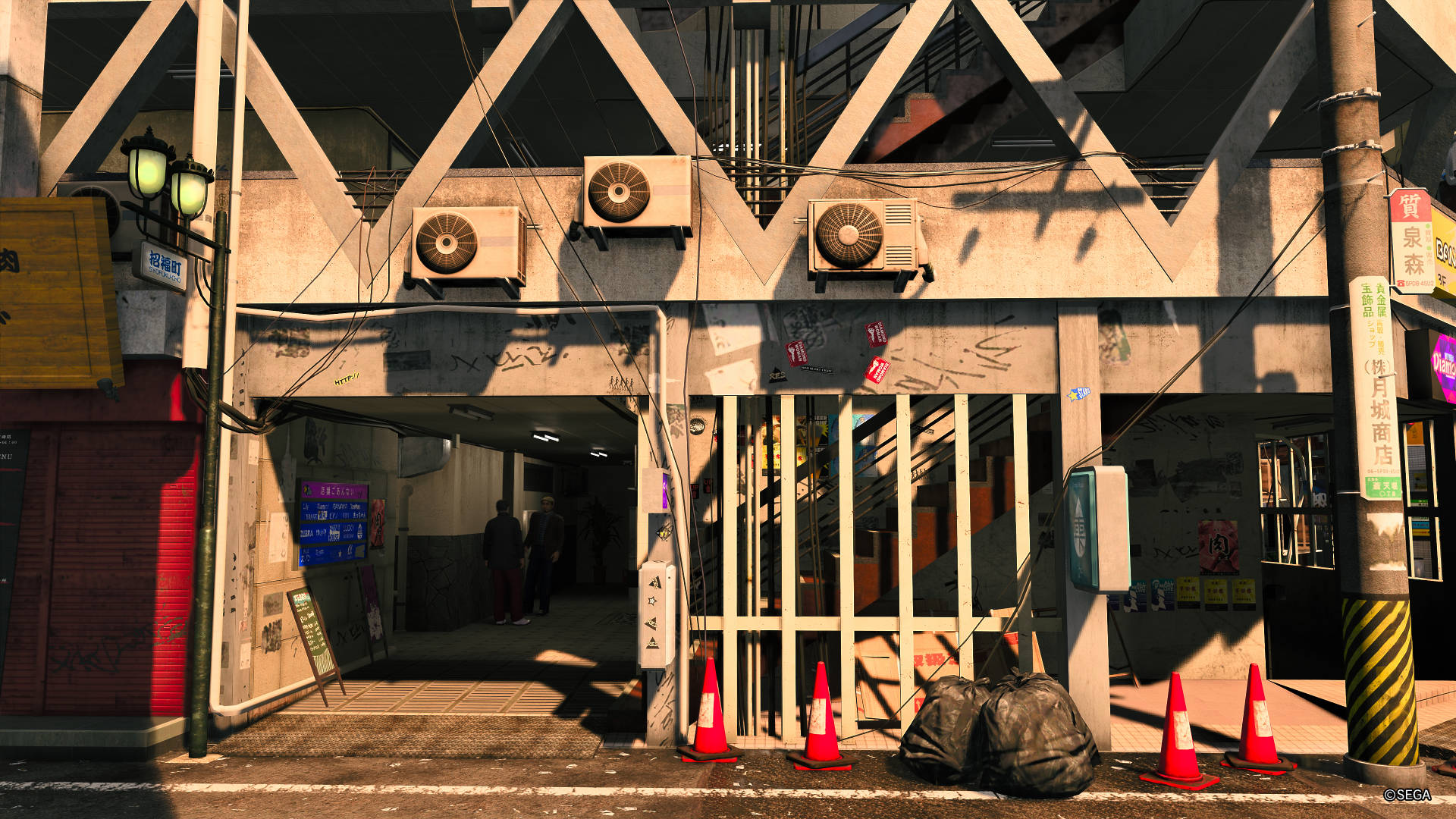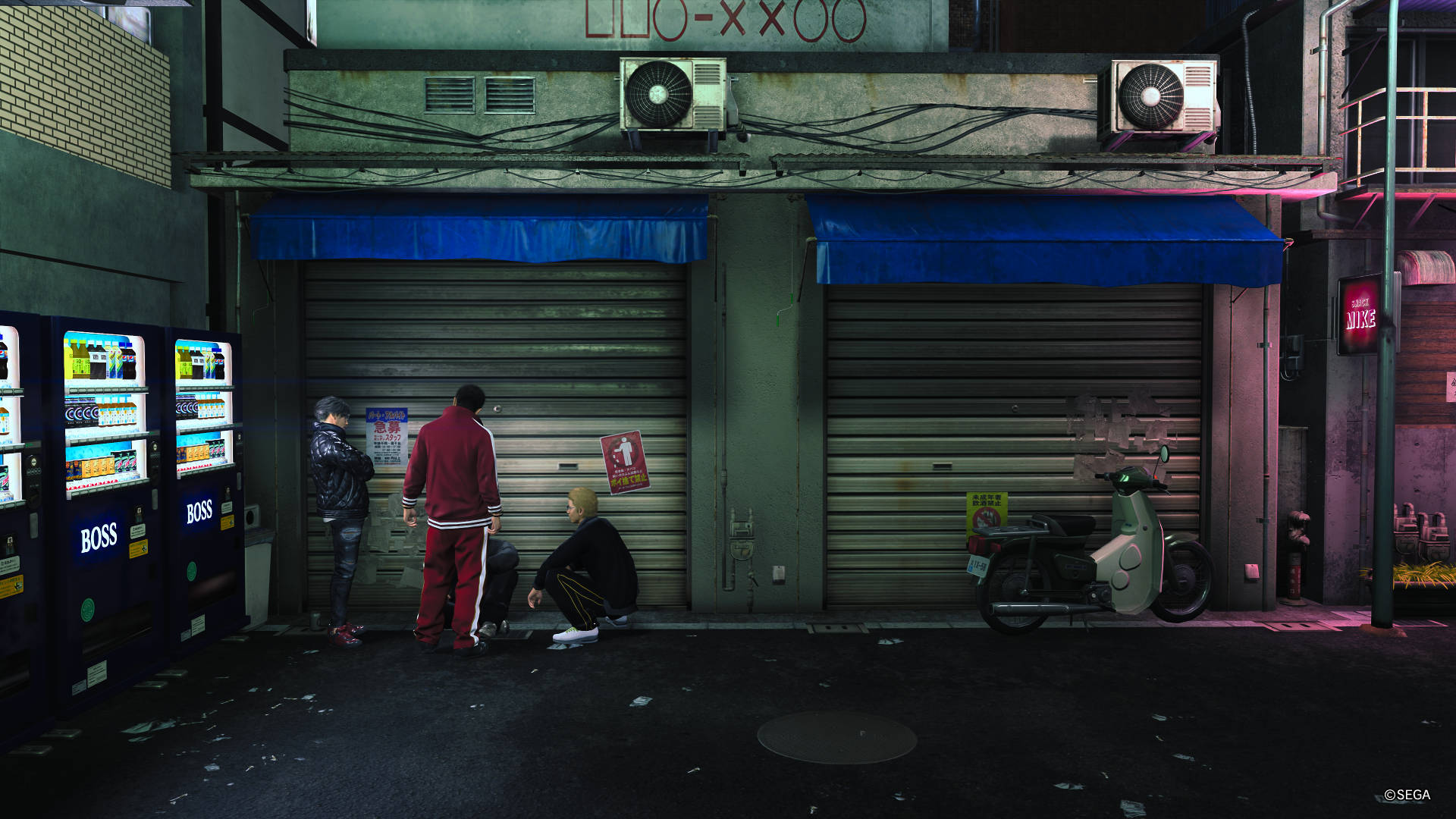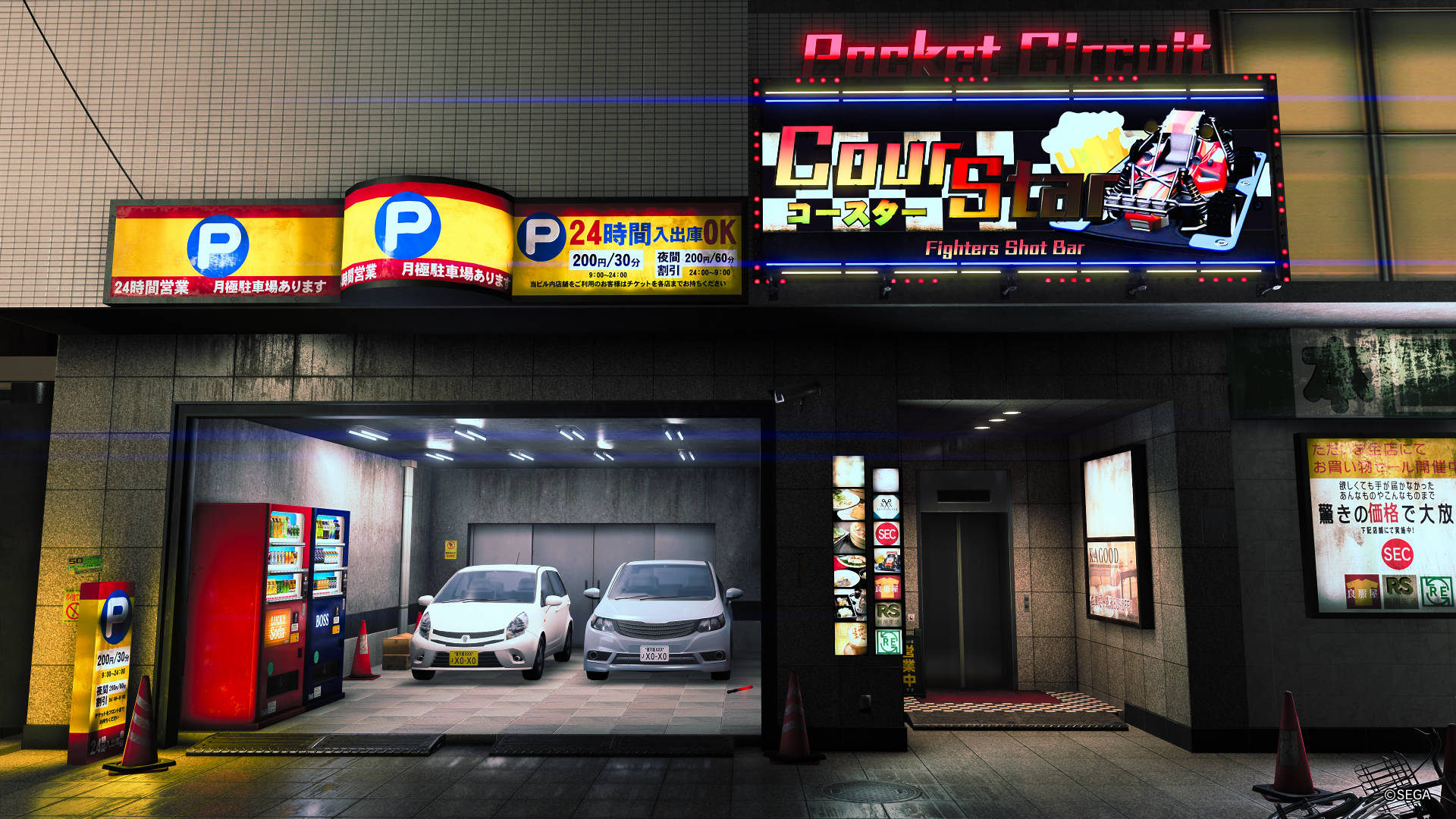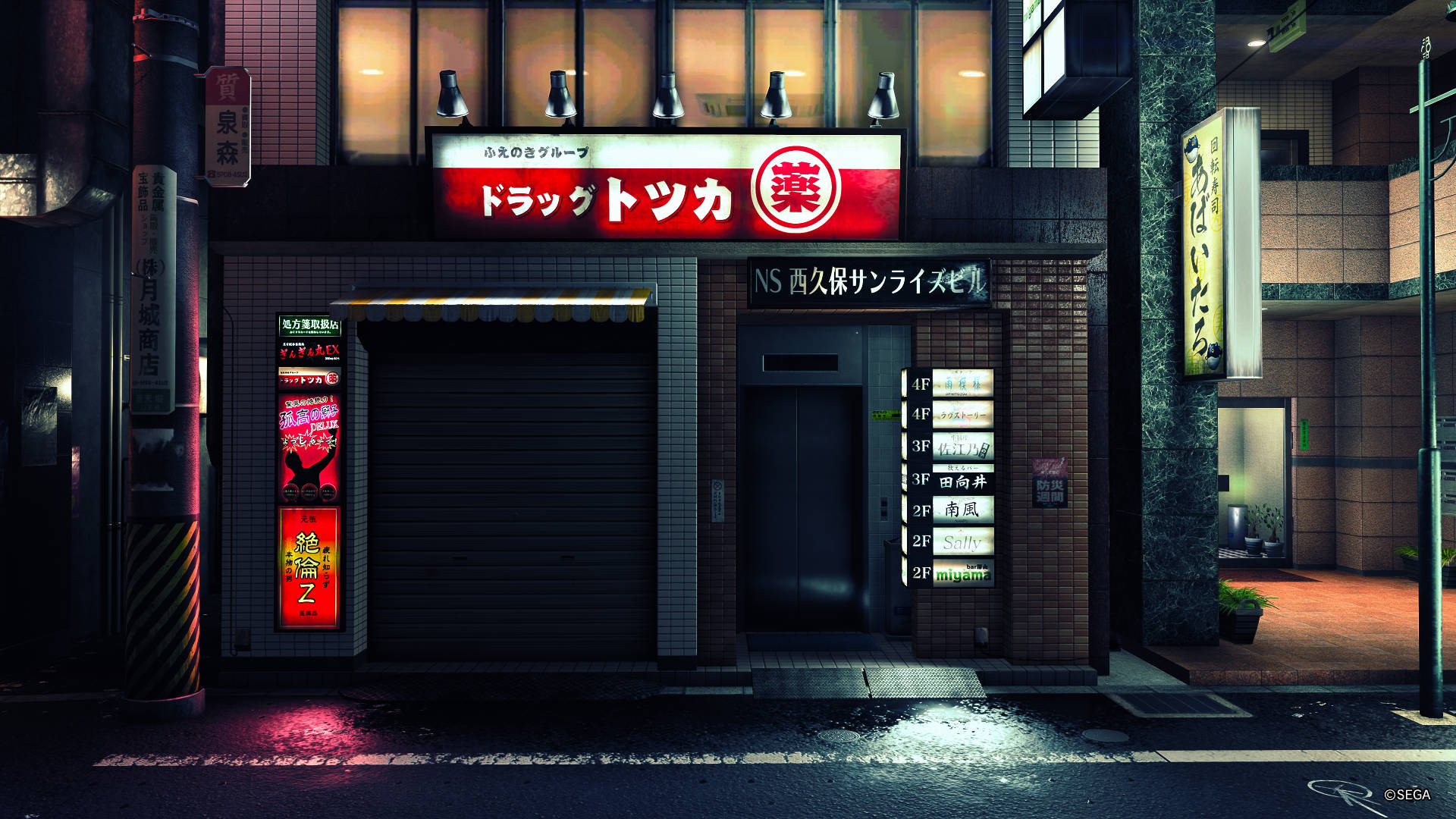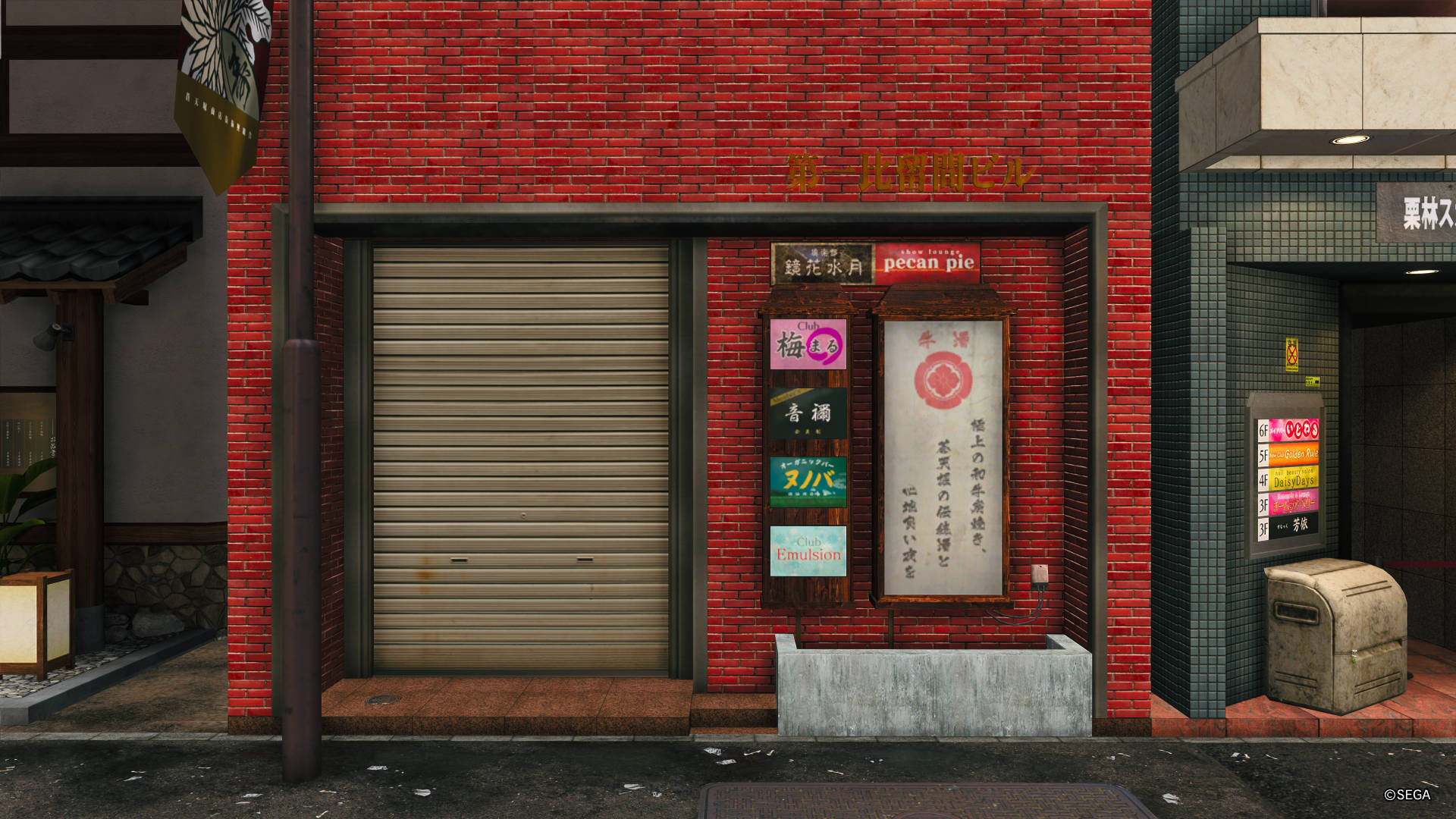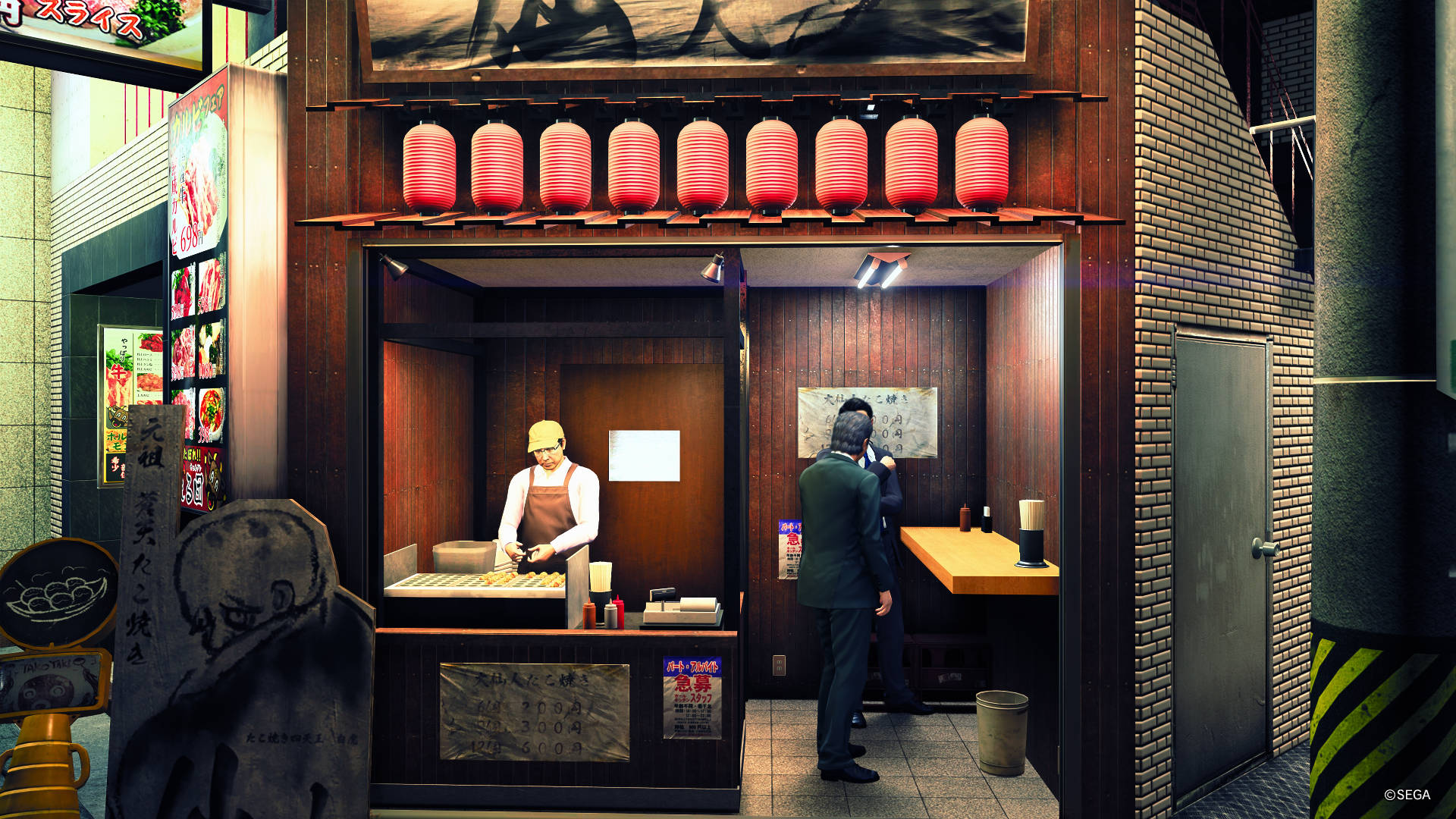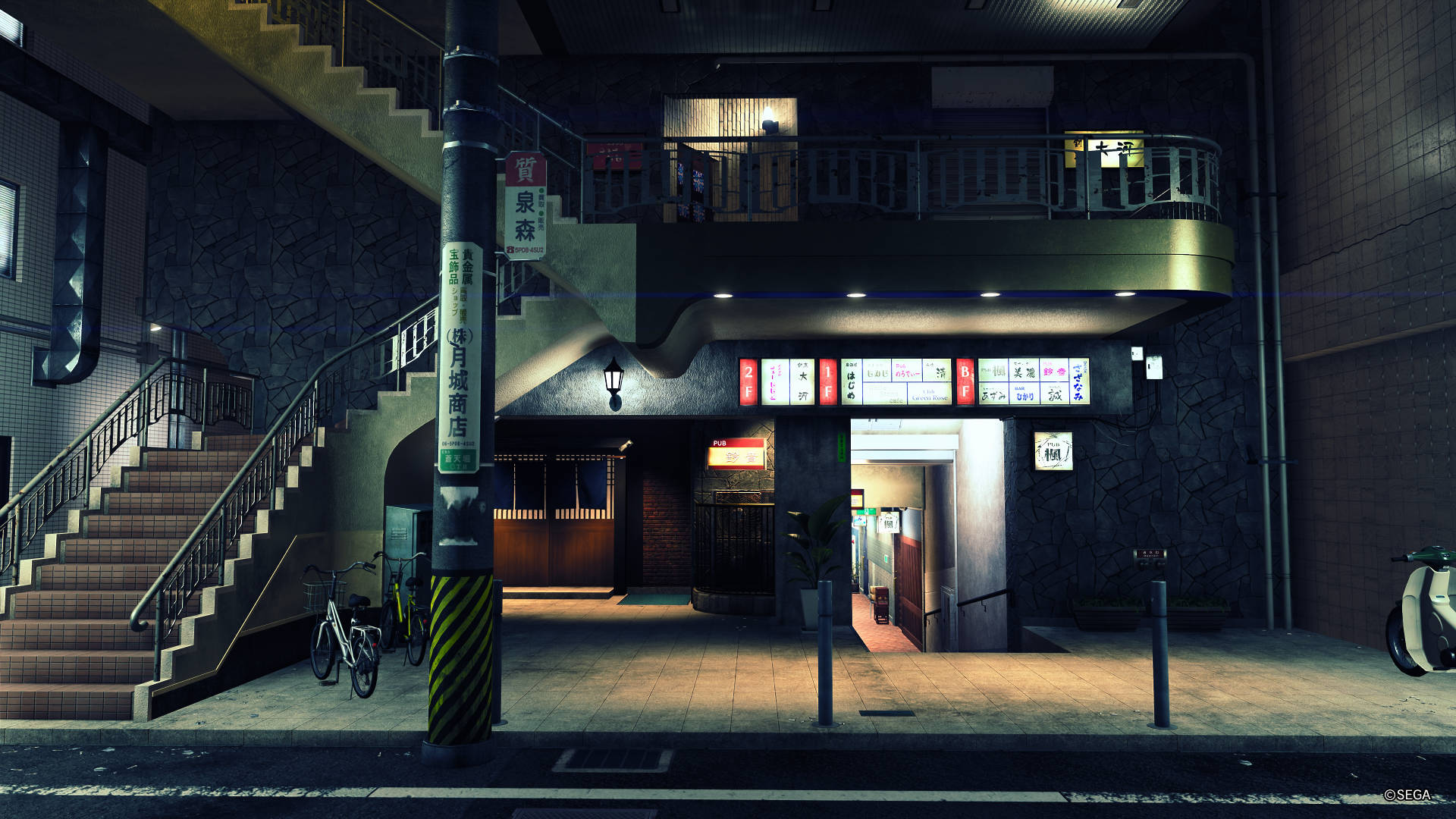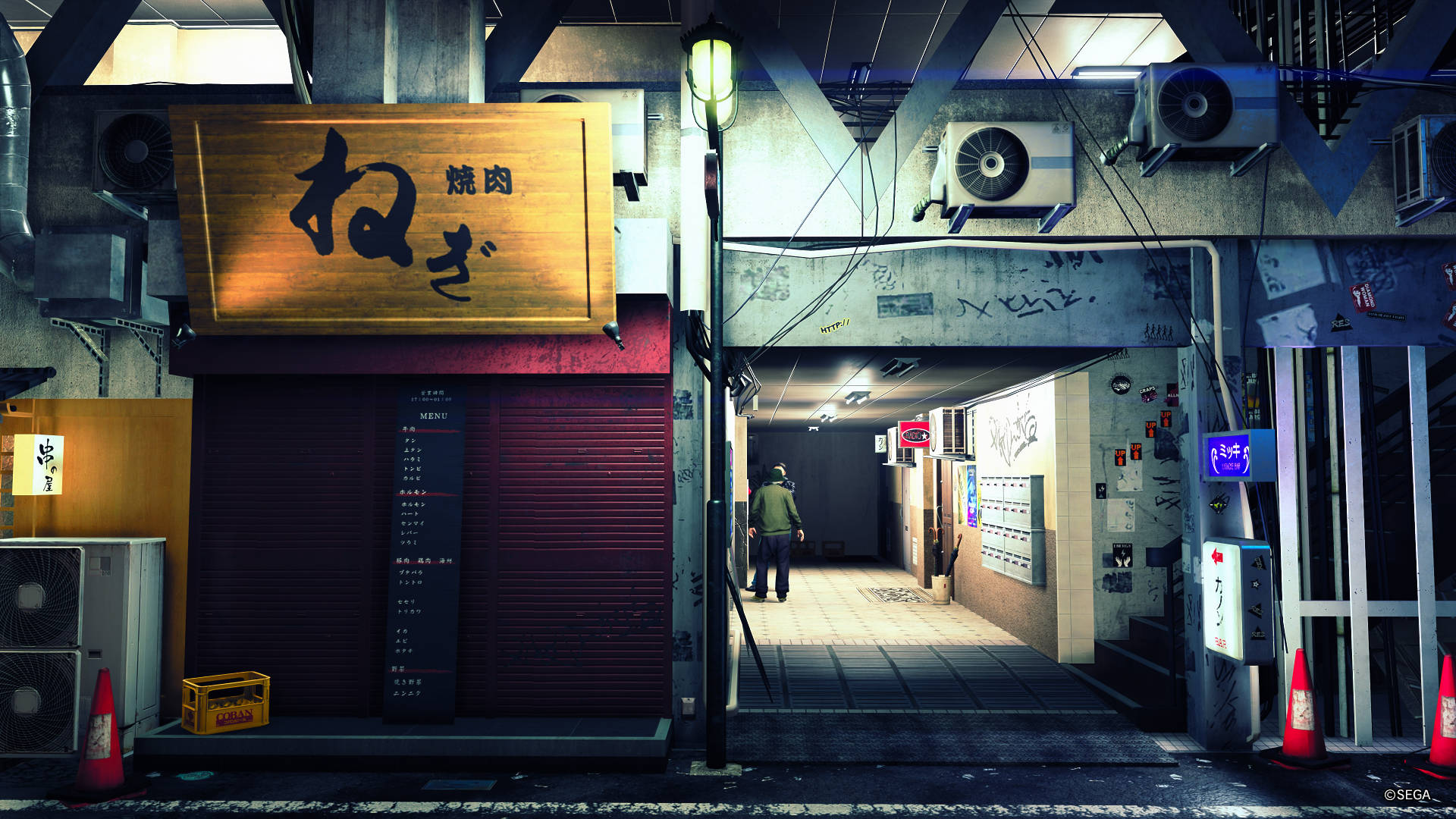The Yakuza series--I'll die in a hole in the ground before calling it Like A Dragon--is really famous for a bunch of stuff. It has bone-crunching combat, it has sprawling stories, it has some of the best sidequests in video game history. Yet every time I play the games there's one thing I like to do before anything else: walk around. In first-person mode, whenever possible.
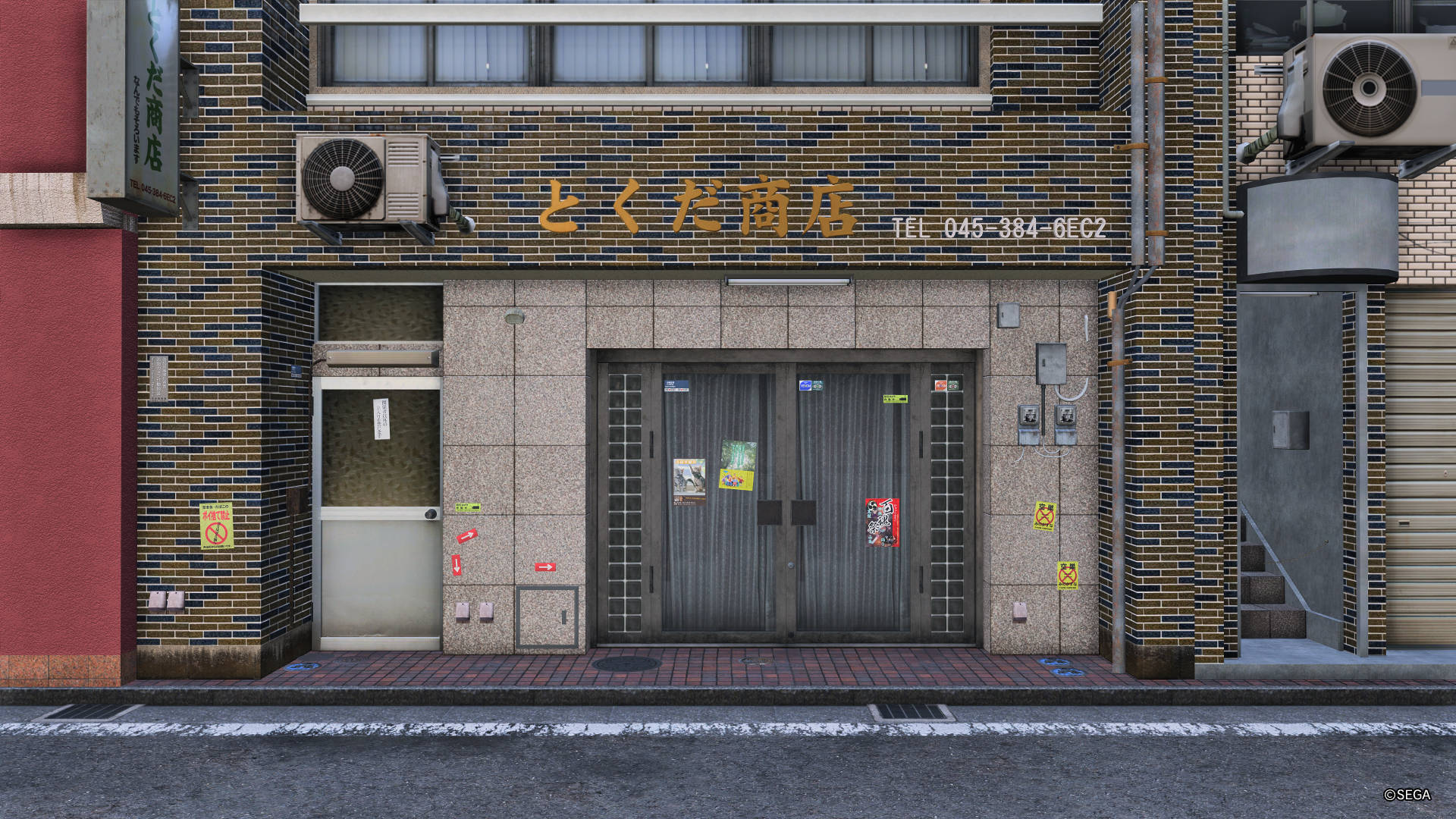
I'm not going anywhere in particular; I just like to walk around. Get a feel for the vibes of the place. See what's up. This series is 18 years old now, and every game has been primarily set in one of just three locations (Kamurocho, Sotenbori and Yokohama). Most of those games have also been set in (or around) the year they came out, so every time a new one drops it's like going home for the holiday season: you know this place, but while you've been away for a year or two there have been a few changes.
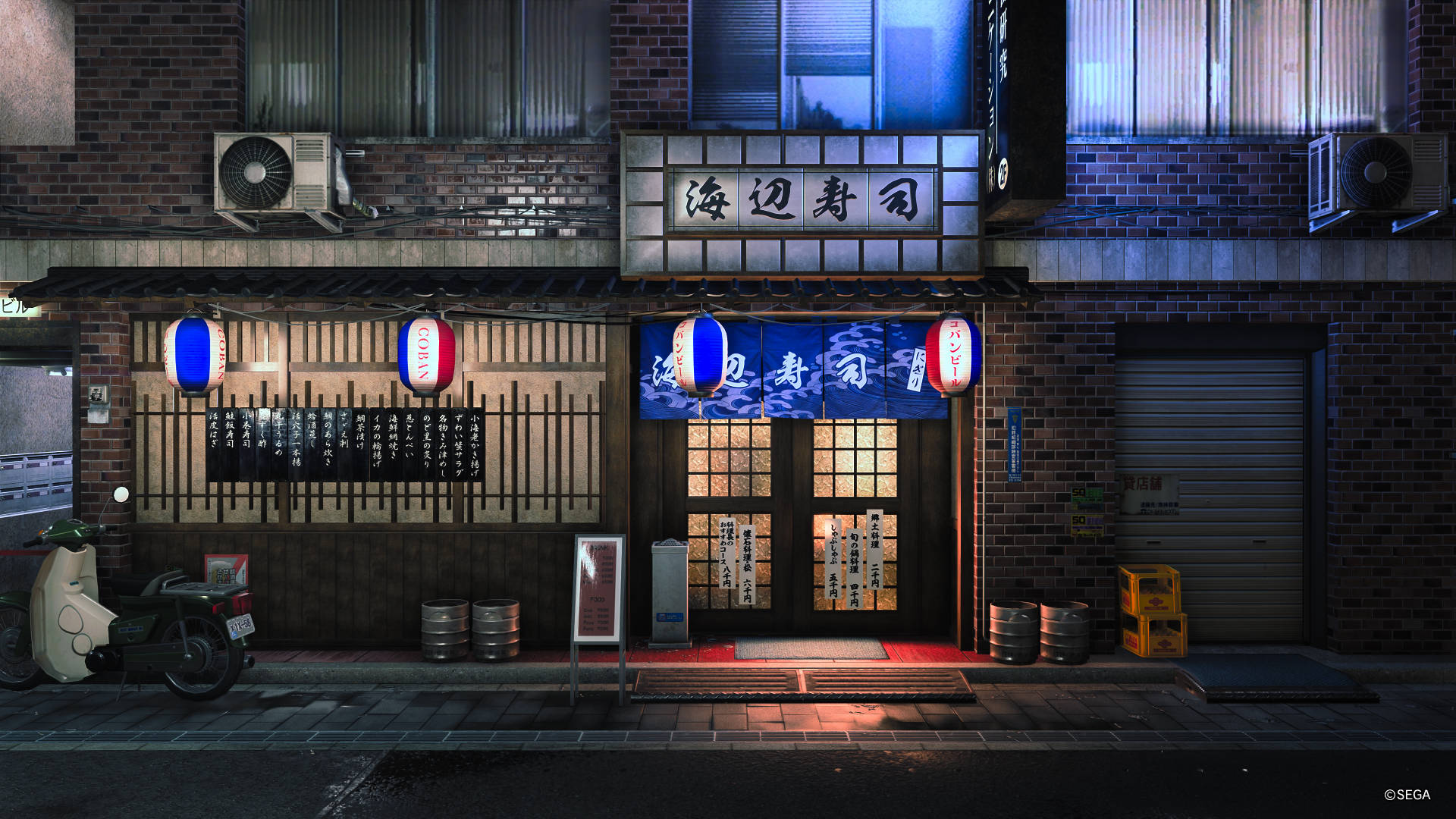
Jumping back in this week for the latest entry in the series, The Man Who Erased His Name, I saw the big convenience store on the corner near the game's first HQ is still there. But the noodle place down the road? It's a café now. Huh. The mysterious office that's always closed, with the scooters always parked out front, it's still there, and you remember it because it was always there every time you'd leave the club and head out for some steak. The old lady selling cigarettes down the street is also still there, but things seem a little quieter in the neighbourhood ever since the big movie theatre renovation. Also: everyone seems to be dressing a little differently now.
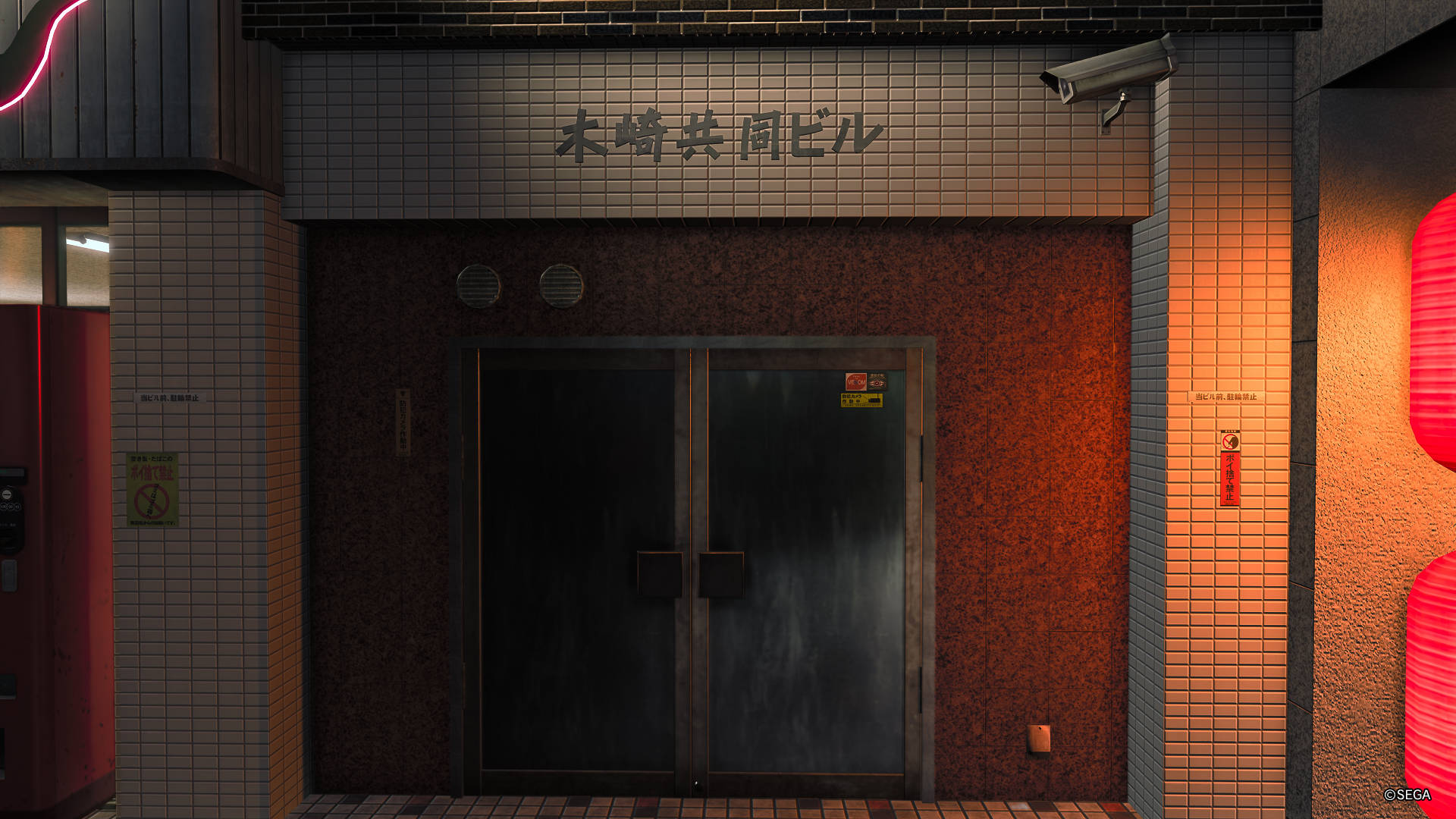
I don't know any other series that makes me feel so at home. Like I know this place. Sure, the frequency of releases helps this--I'd probably know my way around Los Santos a little better too if Rockstar released a new Grand Theft Auto every couple years--but what really sets Yakuza's cities apart is how unique they are.
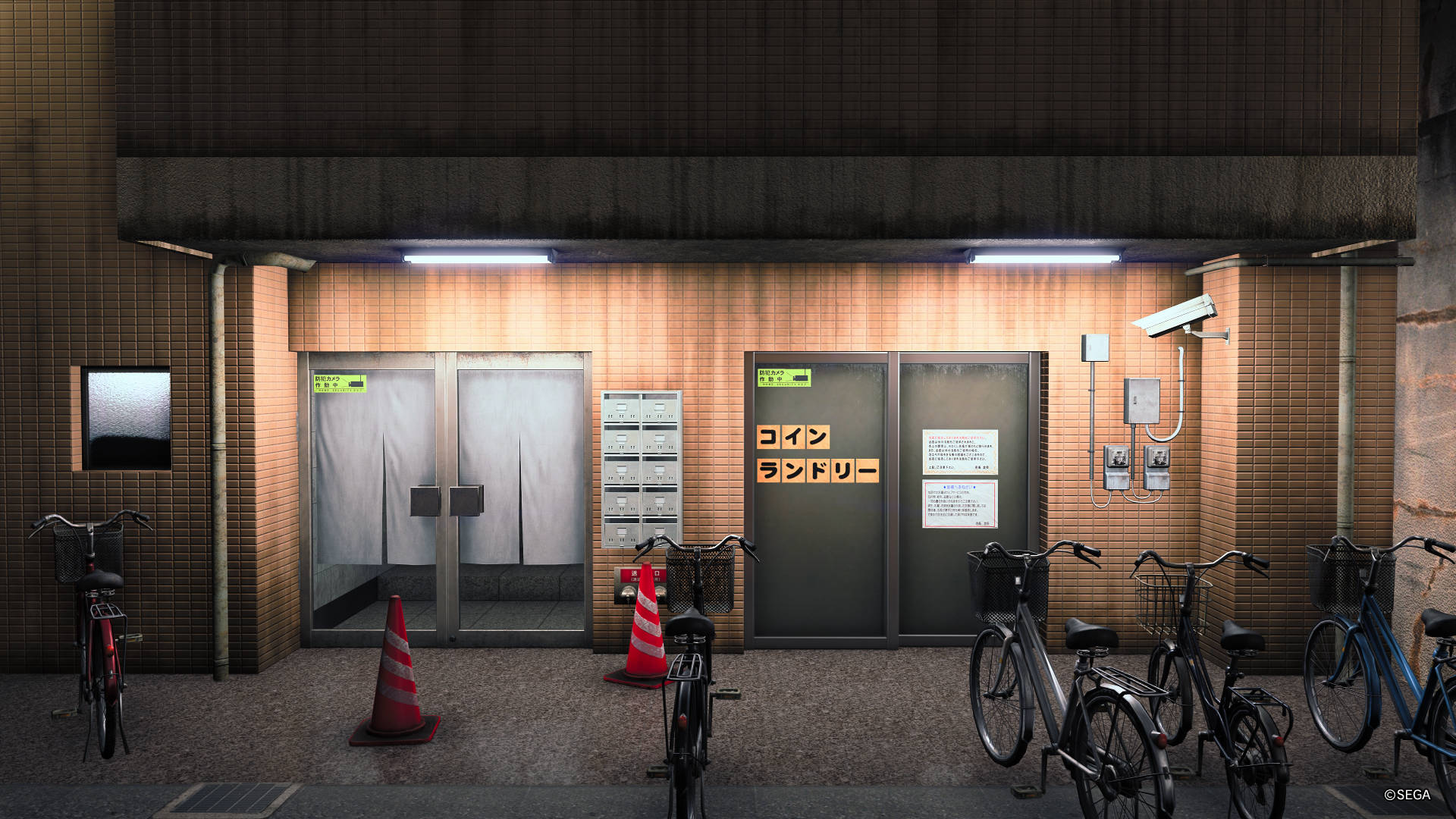
I remember all these buildings and shopfronts because they're all unique. I'm 98% sure that not a single building in Yakuza is entirely copy-pasted; you might see some repeats in bricks or doors, but the overall design and signage for its shopfronts is an exercise in individuality. Wander down the streets of a bar district and every little place, big and small, has its own sign, its own branding and its own menu.
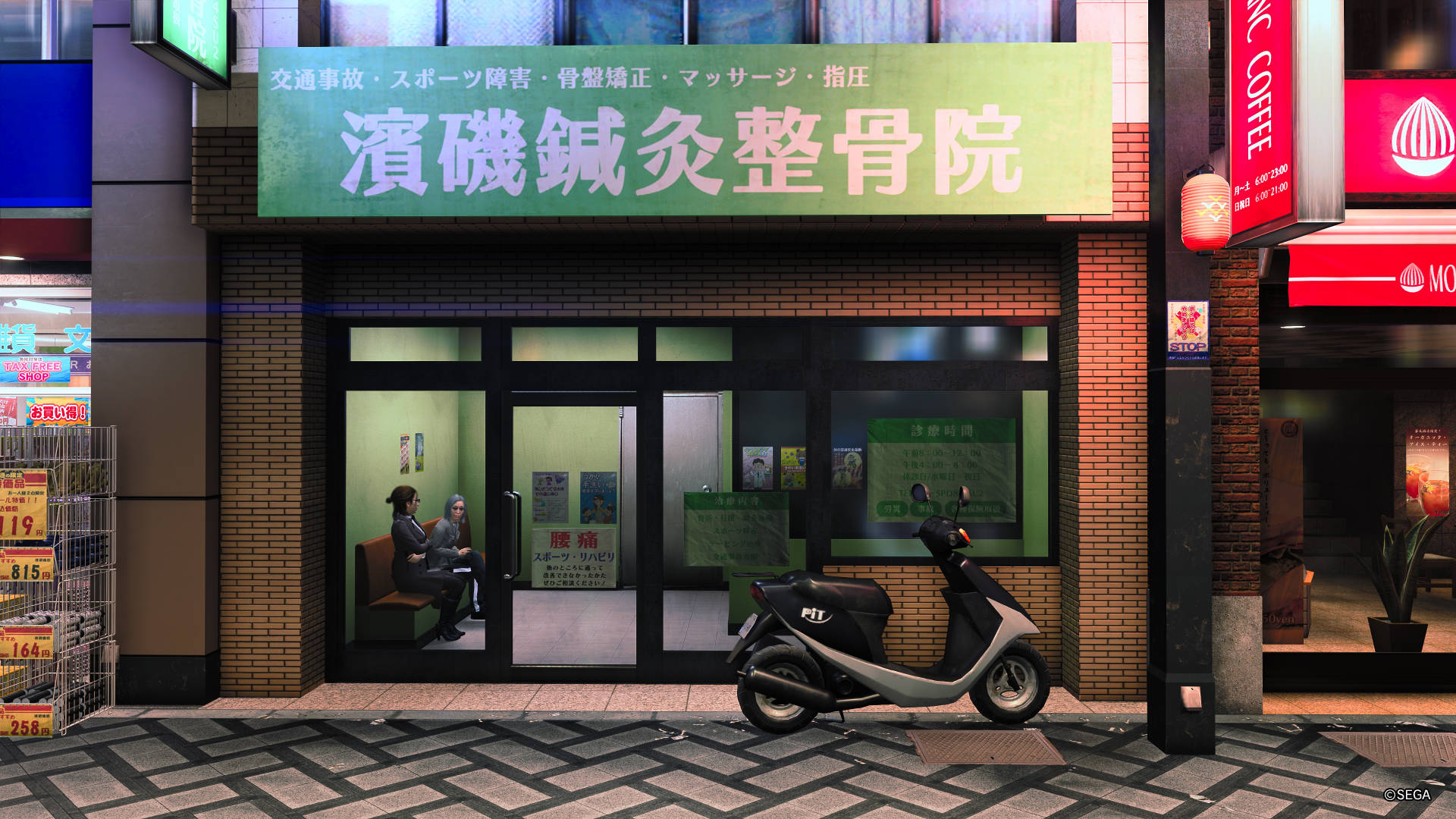
This is cool from a creative point of view; it's such a nice touch that the team have been willing, over the decades, to turn these sprawling urban centres into quaint expressions of commercial design. I like to imagine Ryu Ga Gotoku Studio's artists hunched over lamps every 12 months, painting each shopfront like it was a little Warhammer miniature, a type of craft that I am very into appreciating.
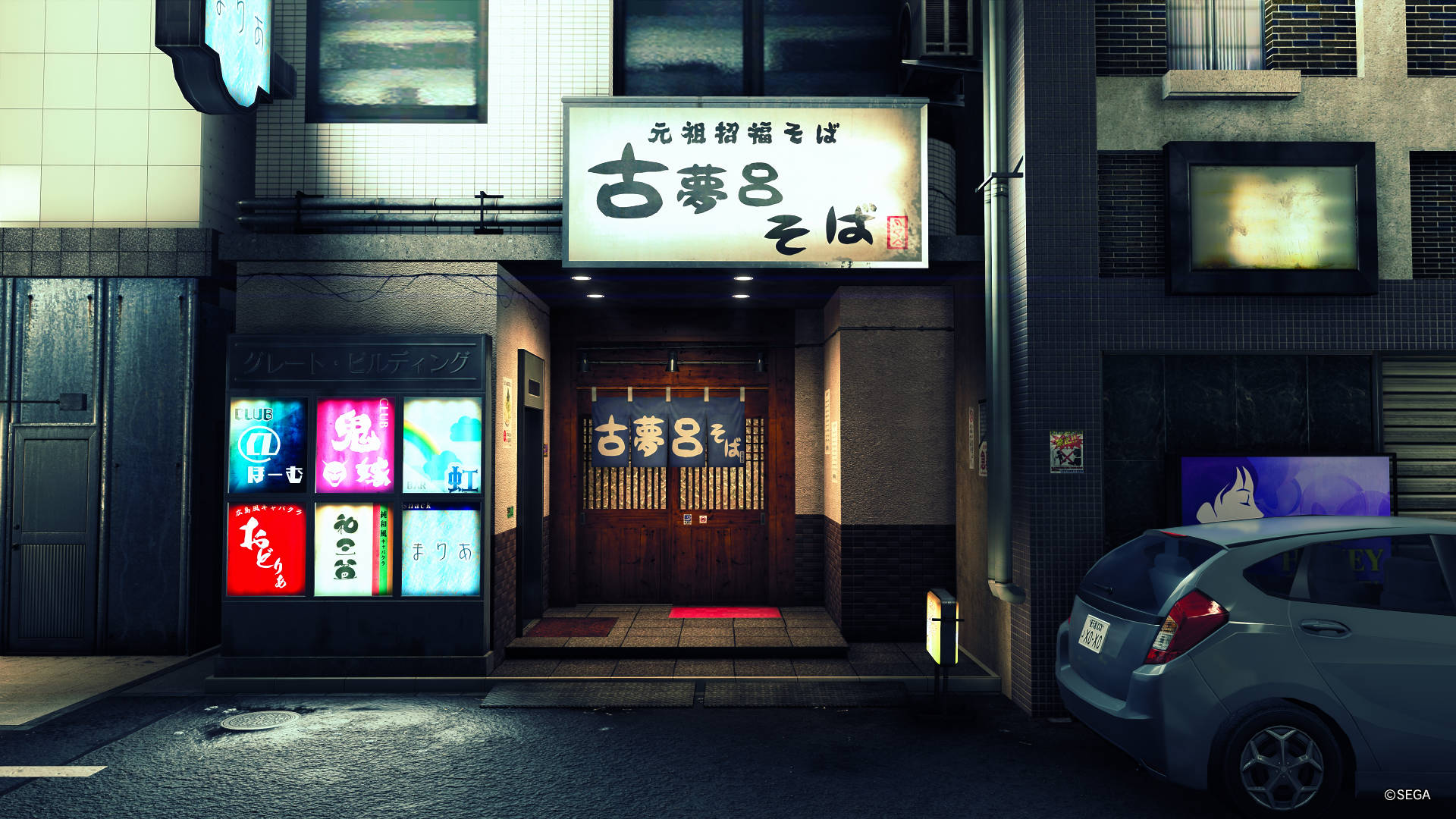
But it's cool from a worldbuilding point of view as well. When every building looks different and there's a sense of continuity between each entry in the series, these stores and offices and apartment buildings start to feel like living, breathing places. That stroll I mentioned above really does feel like going back home, because Yakuza's cities don't feel like video game corridors. They're so realistic and meticulously detailed that it feels like I'm on a little Japanese holiday.
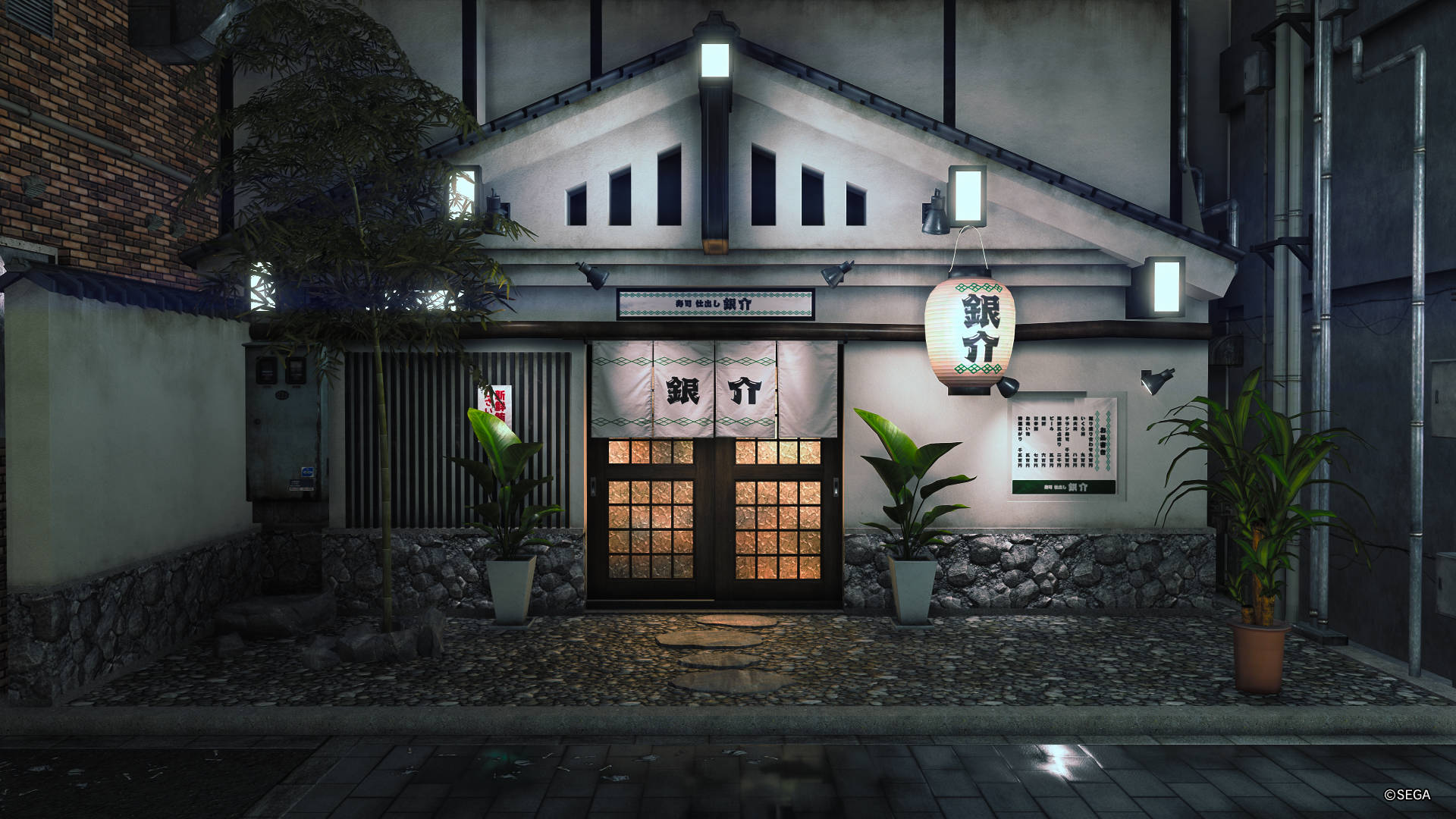
All of which is to say: I hope you enjoy throughout this post the results of my favourite pastime in Yakuza, which is strolling down the street taking photos of every little store, office and business I walk past. The more unremarkable--because everything in so many other games has to be remarkable, all the time--the better.
